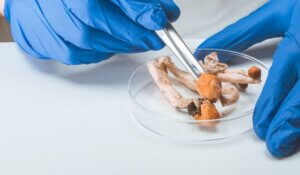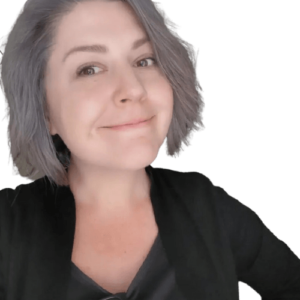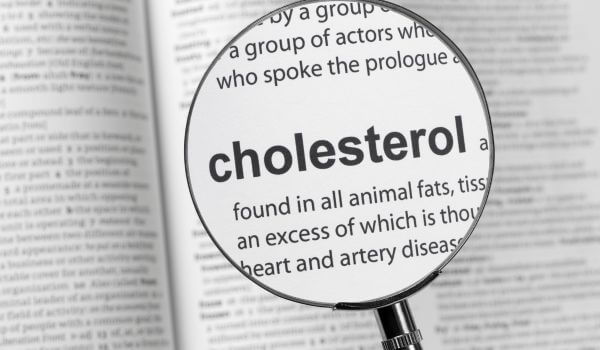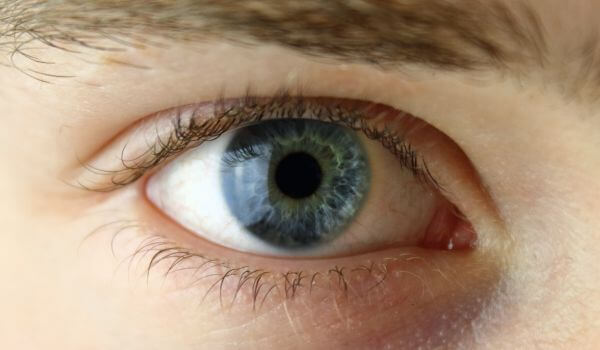 No longer just a popular as a party drug from the 60s, studies now suggest that the active ingredient in magic mushrooms, psilocybin, might help treat depression and other mental health issues. While there are already plenty of effective medications for depression, psilocybin offers hope for those who don’t respond to regular medicine for depression and anxiety. However, one important question remains: Are magic mushrooms really a safe alternative to traditional depression medications?
No longer just a popular as a party drug from the 60s, studies now suggest that the active ingredient in magic mushrooms, psilocybin, might help treat depression and other mental health issues. While there are already plenty of effective medications for depression, psilocybin offers hope for those who don’t respond to regular medicine for depression and anxiety. However, one important question remains: Are magic mushrooms really a safe alternative to traditional depression medications?
Why are better treatments for depression needed?
Many medications are available to treat depression using different methods, but there are still unmet needs. Most antidepressants target chemicals like serotonin, norepinephrine, and dopamine. In recent decades, no new major targets have been found, and improvements have mainly been in how well people can tolerate these drugs.
Unfortunately, these medications, while incredibly useful, still aren’t perfect; only about one-third of patients fully recover from their symptoms, and those with repeated depression episodes often don’t stay better for long. This means there is a growing need for better antidepressants.
Psilocybin magic mushrooms vs traditional antidepressants
Psilocybin, when given in a single dose, has side effects similar to regular antidepressants. These side effects include headache, nausea, anxiety, dizziness, and high blood pressure. However, study participants usually tolerated these side effects well, and they disappeared within a couple of days.
The immediate side effects are like those of regular antidepressants because they work similarly to psilocybin by targeting serotonin receptors. However, unlike regular antidepressants, the effects of psilocybin on depression can last for months.
Psilocybin also affects a different part of the brain compared to antidepressants. This psychedelic drug targets the brain area where negative thoughts keep repeating – in a loop. Brain scans taken before, during, and after using psilocybin show that it can desynchronize the brain, break up those negative thoughts, and help people see themselves in a new way.
Currently, depression is treated drugs such as with Selective Serotonin Reuptake Inhibitors (SSRIs) or Serotonin Norepinephrine Reuptake Inhibitors (SNRIs). The most common ones are Celexa (citalopram), Prozac (fluoxetine), Zoloft (sertraline), Lexapro (escitalopram), Trintellix (vortioxetine), Paxil (paroxetine), and Luvox (fluvoxamine).
Neurotransmitters like serotonin and noradrenaline are chemicals that help send messages between nerve cells and are linked to mood and emotion. SSRIs and SNRIs are medicines that raise the levels of these chemicals in the brain by slowing down their reabsorption. This means there are more of these chemicals available to help improve mood and emotions.
Antidepressants like SSRIs and SNRIs are used to treat severe depression, often with Cognitive Behavioral Therapy (CBT). They don’t fix the cause or cure depression. Predicting the side effects or how they will affect daily life is challenging. So, using them is often like a trial to see if the benefits outweigh the drawbacks for the patient.
Psilocybin has limitations when it comes to freely studying its effects, as magic mushrooms are considered a Schedule 1 drug under U.S. federal law because they cause hallucinations. Drugs in this category usually have a high risk of being abused.
Magic mushrooms and other hallucinogens have been used for a long time by indigenous cultures in spiritual or religious ceremonies. In the 1950s and 1960s, scientists started looking into how these substances might help treat addiction and mental health issues.
Starting in 2019, some states have begun to decriminalize the psychedelic drug, allowing more research into its potential medical benefits. However, until now, most studies on psilocybin have centered on how well it works in treating mental health conditions.
There is a strong belief within the scientific communities studying magic mushrooms that psilocybin will eventually be used as a treatment for certain mental health conditions like treatment-resistant depression. When that happens, it’s important to understand its side effects and possible long-term problems, an area that needs significantly more research. One thing that can be agreed upon, though, is that it is best not to think of it as a magical cure and dose oneself with backyard magic mushrooms. Without proper monitoring, the psilocybin level cannot be known, which might lead to negative effects.
For instance, the FDA warns that antidepressants might raise the risk of suicidal thoughts in young adults. Most studies on psilocybin have focused on adults in their 30s and 40s, so it’s uncertain if psilocybin could have a similar impact on people under 26.
Until recently, only small studies showed positive results for psychedelic drugs, but larger clinical trials were needed to confirm their safety and effectiveness. Now, more extensive studies on psilocybin have been completed.
What does psilocybin do?
Psilocybin is a substance found in certain mushrooms known colloquially as magic mushrooms. When you eat these mushrooms, they can cause different experiences, like feeling extreme happiness or seeing things differently, similar to other hallucinogenic drugs like LSD.
Psilocybin: A psychedelic drug with potential
Studies have shown that psilocybin can help with depression that doesn’t respond to other treatments (known as treatment-resistant depression). Experts think it might soon get FDA approval. There’s also growing proof that psychedelic drugs, which change how we perceive the world, might help with substance abuse, racial trauma, OCD, and more.
Using antidepressants can take weeks before symptoms get better, and sometimes, they might not work at all. Psychedelic drugs could provide a quick and lasting improvement, which could be lifesaving for some conditions.
Psychologists also play an important role in treatment with psychedelic drugs. They help people get ready for the “trip,” which is the experience of taking the drug, which can last many hours. After the trip, they help people understand what they experienced and help them integrate what they learned into their lives. To help professionals use these drugs safely in clinical settings, psychologists are creating training programs based on the latest research. Right now, this is only allowed in research studies, but it might change if the FDA approves therapy using psilocybin or other psychedelic therapies.
While there’s a chance of having a bad reaction to psychedelics, the risk is low in psychedelic therapy trials because they’re very carefully controlled. However, individuals with some mental health issues could have a higher chance of negative effects such as psychosis. If someone has a family history of psychosis, has had it themselves, or has a condition like schizophrenia that includes psychosis, using psychedelics might not be safe.
The future of psychedelic-assisted therapy
In the meantime, the industry is gearing up for a boom in psychedelic drug treatment for all kinds of conditions. In 2025, the California Institute of Integral Studies (CIIS) plans to grow its community health services by opening a new clinic focused on psychedelic drugs. This clinic will offer treatments using ketamine to help patients. It will be the first university-linked clinic of its kind in the United States.
It’s a great time to start clinics for therapy using psychedelic drug treatments because these substances might soon become legal with changes in federal laws, as long as the FDA agrees. Once these treatments are legal across the country, there will be a significant need for clinics that are already trained and can offer psychedelic-assisted therapy. Since ketamine is already allowed to be prescribed for different disorders, ketamine therapy has been a leader in making this type of treatment available to people who need it. Psilocybin therapy may not be too far behind it.
FAQs
Can the brain fully recover from depression?
Yes, it may be possible. Brain shrinkage might be caused by depression because dendrites, the branches of nerve cells, become weaker, not because brain cells are lost. This means that changes in the brain from depression could be fixed, and the brain might recover.
Is depression genetic?
There could be a 40-50% degree of heritability for depression and it could be even higher in severe cases. This means that about half of what causes depression might come from genes, while the other half is due to psychological or physical factors.
Am I depressed or just sad?
Feeling sad is normal during tough times, but it usually fades away. If this sadness sticks around for two weeks or longer and starts messing with your daily life, it could mean you’re dealing with depression.
Is depression my choice?
A lot of people wrongly think that depression is a choice or that all someone needs is a positive outlook. However, depression is a genuine mental illness that may need treatment or therapy.
What type of depression is not treatable?
Treatment-resistant depression (TRD) is a form of major depression that doesn’t respond well to standard treatments. It occurs when at least two different antidepressants fail to help during a depressive episode.

















